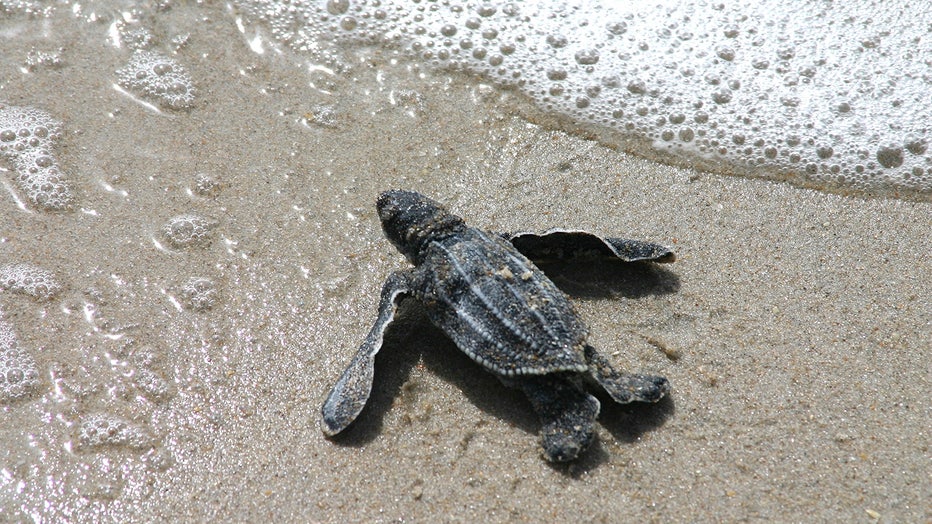World Sea Turtle Day is a reminder to be mindful of Florida’s nesting season
TAMPA, Fla. - Sea turtles are part of the Sunshine State’s identity and, more importantly, the ecosystem. Every year, there is one day dedicated to all the sea turtles in the world and conservation efforts to maintain their populations, but wildlife officials say residents should be mindful of the species year-round.
This year, World Sea Turtle Day falls on June 16, 2021. On Wednesday morning, the Florida Fish and Wildlife Conservation Commission wanted to not only remind Floridians of the day, but also that it is sea turtle nesting season along the beaches.

(Karen Parker/FWC)
Nesting season in Florida runs from May through October. Along beaches, visitors may notice certain areas that are marked off in the sand.
"It’s important for people to recognize how we mark our nests. What you’re going to see when you come to the beach is a roped-off area with yellow stakes and some signs that clearly state not to disturb the nests," said Yvette Fernandez, the senior sea turtle biologist with Clearwater Marine Aquarium. "The reason for that is because we want to leave enough space for them to do what they have to do as they incubate under that sand."
When it comes to beachfront lighting, it’s important to make sure those lights don’t attract baby turtles away from the sea. FWC says there are three "golden rules" when it comes to the lighting:
- Keep it low: Fixtures must be mounted as low as possible and still be appropriate for the needed purpose. Bulbs must produce the lowest wattage/lumens necessary for the needed purpose.
- Keep it long: Lamp/bulb must produce only long-wavelength light (560 nm or greater, which is amber, orange, or red).
- Keep it shielded: Fixture must be completely downward-directed. The fixture must be able to shield the bulb, lamp, or glowing lens from the beach.
It takes everyone doing their part to keep these hatchlings safe. No matter how cute they might be, if you see a hatchling on the beach, Fernandez advised not to touch the turtle but to instead call FWC at *FWC or #FWC, or send a text to Tip@MyFWC.com.
RELATED: Treasure Island installs sea turtle-friendly lights in time for hatchling season
In Florida, all five of its sea turtle species are either endangered or threatened, meaning it's illegal to harm, harass or kill any sea turtles, their eggs, or their hatchlings.
The Endangered Species Act lists the green, leatherback, hawksbill, and Kemp’s ridley turtle as endangered. The loggerhead turtle is listed as a threatened species.
Learn more about sea turtles in Florida by visiting FWC’s website.

